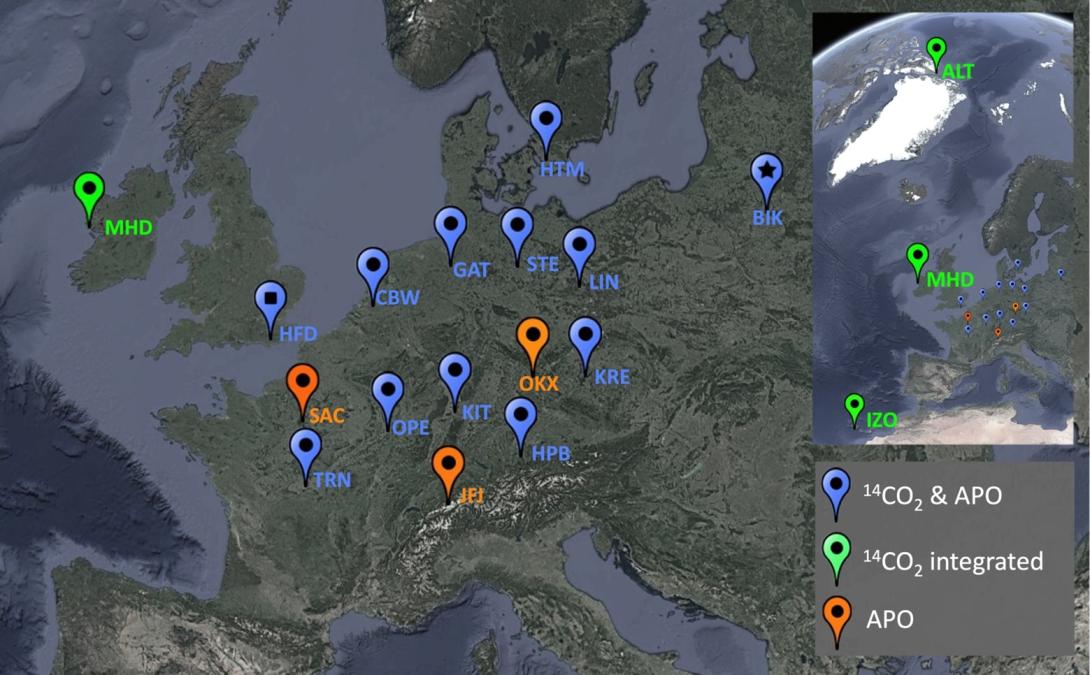To enable the European Union (EU) to move towards a low-carbon economy and implement its commitments under the Paris Agreement, a binding target was set to cut emissions in the EU by at least 40% below 1990 levels by 2030. To support EU countries in assessing their progress for reaching their targets agreed in the Paris Agreement, the European Commission has stated the need for an objective way to monitor anthropogenic CO2 emissions. Such a capacity will deliver consistent and reliable information to support policy- and decision-making processes. To maintain Europe’s independence in this domain, it is imperative that the EU establishes an observation-based operational anthropogenic CO2 emissions Monitoring and Verification Support (CO2MVS) capacity as part of its Copernicus programme.
The CORSO project is further supporting the establishment the new CO2MVS addressing specific research & development questions. CORSO has started on its path to deliver the capabilities at global and local scale to optimally use observations of co-emitted species using their emission ratios and uncertainties to better estimate anthropogenic CO2 emissions. CORSO also assess the added-value of high-temporal resolution in-situ 14CO2 and APO observations in global and regional scale inversions and of satellite observations of soil moisture, LAI, SIF, and Biomass in the global CO2MVS system to better separate the impact of fossil fuel and biospheric fluxes on the atmospheric CO2 concentrations. The main long-term impact of CORSO will come through the delivery of documented methodologies, prototype systems, and recommendations, addressing the identified topics above, feeding into the ramping-up of the operational CO2MVS capacity and therefore ensuring a more comprehensive and accurate CAMS anthropogenic CO2 emission monitoring and verification support capacity.
These plans were initiated at the virtual Kick-off meeting on January which brought together all 16 partners from across Europe “We had very constructive discussions on detailed plans for the three years ahead,” said Richard Engelen, the Project Coordinator of CORSO.
Building on past projects:
The H2020 projects CHE and CoCO2 have already started the ramping-up of the CO2MVS prototype systems, so it can be implemented within the Copernicus Atmosphere Monitoring Service (CAMS) with the aim to be operational by 2026.

